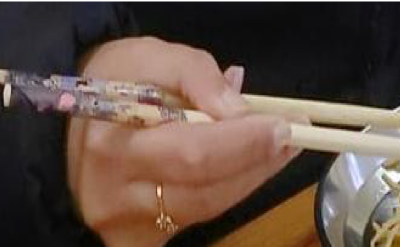The Strategy of ‘
Kuaizi’ is perhaps the game changer for the emerging business collaboration between India and China. While the comparative advantages of both the nations and rise of global protectionism are two of the drivers presenting promising prospects, the Indian market is shuddered by the scarcity of human resources, skilled and competent enough to catalyse the business relations between the two nations. As of now, the presence of companies such as Cheetah Mobile, We-Chat, Alibaba and a few of its subsidiaries in India is grappling with high attrition rates. The churn at the senior level has either disbanded entire teams in cases like Cheetah Mobile or downsized teams to half in cases like WeChat, Alibaba, and UCWeb. (As reported ET Times, November 2018). Here lies the impetus of what can be termed as the Strategy of ‘
Kuaizi’.

The IIM Shillong PGPEx has well understood and developed the model based on the Strategy of ‘
Kuaizi’ to galvanize Indian organizations with existing ties in China or having future prospects for the same. MBIC has nailed the issue right. The solution is not only updating the Indian Human Resources with the facts and figures about the Chinese economy, business and culture, but to make them adapt according to the Chinese culture, work ethics and context, which is, at the root level, very similar to the Indian conventions, code of conduct and values. The difference is that in business work-culture, Indians have imbibed the liberal code of conducts and professionalism of western culture. It is not only studying the contextual intelligence to build a business model but to practise it. And this requires to take the challenge of developing a solid base of language proficiency and practical training of the cultural aspects.
While attending the Mandarin Lab, we felt that this challenge is analogous to the general view of the use of Chopsticks – or ‘
Kuaizi’ as called in Mandarin. Usually, the use of chopsticks is considered very difficult and overhead because people reason that when spoon and fork can provide a simple and straightforward method of eating, why to go for the constrained eating using g chopstick. And this is what they think when they try to understand China. But China has a perspective of the chopsticks which is completely different but worth appreciating for us. For them, chopstick is not a challenge but a learning. A pair of chopsticks represent mutual respect and love. It is not a transaction but an acceptance. Not just a part of the kitchen, but a context –just to hold it right. And this is what we need to follow when we try to step into one of the richest civilizations.
As mentored by the visiting faculties (Experts of Sino-Indian business relations) we are trying to inculcate the propensity to adapt and practise, when required, the Eastern and specifically Chinese, contextual norms. Covering the Mandarin proficiency, pragmatic approach to imbibe Culture and Legal compliances, we are made to touch the sensitive aspects of business relations such as Negotiations, relationship building –or Guanxi, organisational behaviour and communication decorum.
This experience is not just a China-specific skills development but the development of the right attitude and technique to learn how to understand and approach a civilization, culture or a new market. It is more of enlightenment to shun off the stereotypes and pre-conceived notions and to explore with an open mindset.
Hence, with a pair of beautiful chopsticks, looking forward to exploring the culturally abundant and largest economy of the world.



